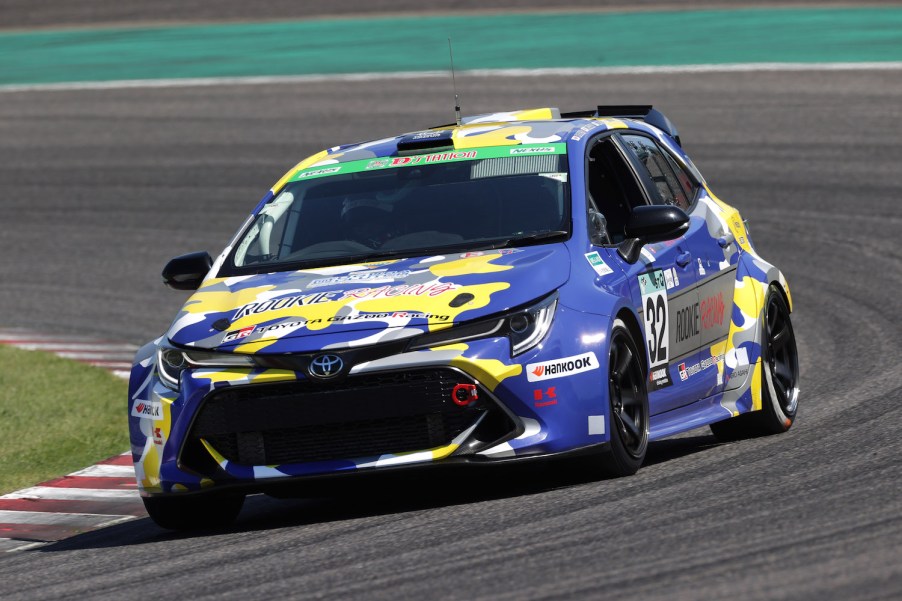
Toyota Banks Future of the Auto on a Hydrogen Race Car
The world has been pushing toward electric vehicles for many years. While carmakers are scrambling to develop a viable way of phasing out fossil fuels, Toyota is sticking with what it knows: internal combustion, and don’t worry. Possibly the biggest car company with the biggest green thumb isn’t trying to make nice with gasoline. The carmaker that commissioned $13.5 billion into a 15-EV lineup by 2025 is developing a race car that can run on hydrogen.
Toyota declined to meet with U.N. delegates to compete with hydrogen
Glasgow hosted a meeting over the weekend with several U.N. delegates and six major carmakers, including Ford, Volvo, Daimler, and General Motors. The topic: saving the world. They pledged to remove fossil-fuel cars by 2040. Meanwhile, Toyota, Kawasaki, Subaru, Mazda, and Yamaha had other plans. Over the weekend, they participated in the Super Taikyu Series race at Okayama International Circuit using vehicles powered by carbon-neutral fuel. The Super Taikyu series is Asia’s premier endurance racing series.
The Japanese brain trust is working on expanding the use of carbon-neutral fuels

It wasn’t a one-off. Those companies pledged to work together to produce, transport, and use carbon-neutral fuel in their internal combustion engines. Toyota’s opinion is the world is not ready for the switch to electric vehicles and that carmakers should be trying to use the technology they already have, i.e., internal combustion engines, which aren’t inherently unfriendly to the environment. That particular honor belongs to the fossil fuels. Yamaha has a big stake in this effort. It’s in charge of designing specific engine components, while Denso is handling the injection and spark systems.
G.R. Yaris engine-equipped Toyota Corolla stole the spotlight
Toyota used a Corolla Sport fitted with the G.R. Yaris engine to participate in the Super Taikyu series over this past weekend. The GR Yaris engine was converted to run on hydrogen. Under the influence of gasoline, the G.R. Yaris uses a turbocharged engine that sends about 270 horsepower to all four wheels via a six-speed manual transmission. Honda and Suzuki are slated to join in the effort of using carbon-neutral internal combustion engines as well but with motorcycles.
Racing is the best environment for developing hydrogen-powered engines

One of the best ways to speed up car technology development is through motorsport. It’s a proven testing ground for technology that has a habit of eventually trickling down into passenger cars. Hydrogen isn’t a perfect answer yet; it still has a ways to go before it’s viable. For instance, right now, it produces 2-percent of the emissions of gasoline engines thanks to engine metals.
Hydrogen-powered cars also need large unconventional-shaped fuel cells, and hydrogen itself is dangerous enough for Toyota to refuel their car in a separate pit area. The Japanese brain trust still has a lot to figure out, especially in the way of transporting and producing hydrogen as a fuel. Still, Toyota has experienced significant power gains using hydrogen, with roughly the same fuel economy. If the horsepower is already achievable, it’s a good start.


